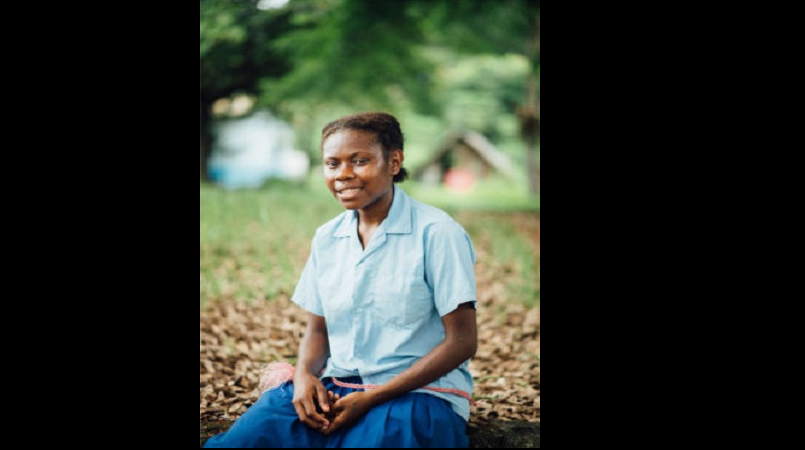
As the world marked Menstrual Hygiene Day on Sunday, girls at Ieneula in Tanna celebrate the progress they’ve made in tackling the barriers to education and opportunity that young girls commonly face because of menstruation.
CARE International in Vanuatu will host an event featuring presentations from teachers and girls and a screening of the documentary film Nomo Fraet at Ieneuala Secondary School today.
Florence, a student form Tanna said during her menstruation, she stayed home in fear of being humiliated.
“Before, when I got my period, I did not go to school. I was afraid of being humiliated, so I just stayed at home,” says Florence, a 17-year-old student on Tanna Island in Vanuatu’s south.
Florence is not alone. According to early research, an estimated 75 per cent of girls in Vanuatu miss up to three days of school each month because they have their period, or ‘sikmun’.
The reason is multifaceted – safe, private toilet facilities are often not accessible at school, and neither are commercial sanitary pads, which are an unattainable expense for many families.
Girls, particularly in rural areas, often use rags or even leaves when they have their period, which is unreliable as well as unhygienic.
Cultural taboos that prohibit girls and women from everyday activities like cooking or washing dishes during menstruation also contribute to a widespread belief that periods are unclean.
A lack of knowledge about the reproductive system in general compounds the problem.
The result is that many girls are left scrambling to catch up at school every month, making it difficult to learn, more likely that girls with drop-out of school, and reducing future employment opportunities and earning potential – impacts that affect whole communities, islands and Vanuatu as a nation.
The Menstrual Hygiene Management (MHM) program that CARE is carrying out in Tafea province in partnership with UNICEF and ni-Vanuatu social enterprise Mamma’s Laef is designed to break down the stigma surrounding girls’ menstruation, while educating girls on their changing bodies and providing a hygienic and sanitary learning environment.
By providing girls with education sessions about MHM and the reproductive system, safe toilets with washing taps inside, and MHM kits including reusable sanitary pads, CARE is helping girls to change the statistics and their futures.
“The knock on effects when girls don’t have the information and resources they need for menstrual hygiene management can be so wide ranging,” says Megan Chisholm, CARE’s Country Director in Vanuatu.
“Inadequate MHM not only reinforces gender inequality, it can also be connected with problems like gender-based violence and teenage pregnancy. Simple interventions can make a real difference in tackling some of these big issues.”
“I was trying to understand things myself and then CARE came and explained everything to us,” says Florence. “I feel like now I know everything; I feel like when I get my period, I am not worried. I am not afraid anymore.”
CARE is also celebrating Menstrual Hygiene Day with the international release of the film Nomo Fraet, which documents the journey of Florence and several other girls in Tanna through CARE’s MHM program
Photo: Florence, 17 from Tanna Island
